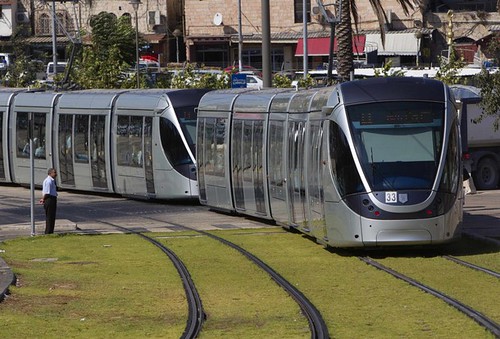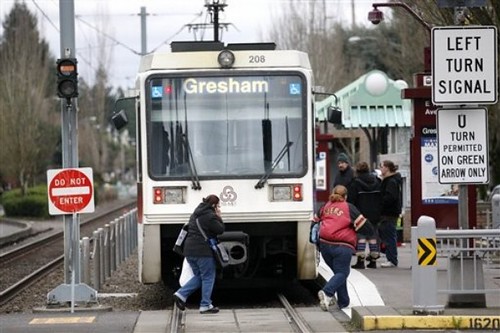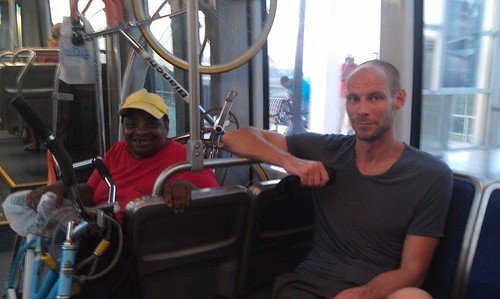Transit stuff

Protest sign against the Tide light rail system, Norfolk.
1. Washcycle reminds us that the light rail system in Norfolk, Virginia opened yesterday. See "30000 people ride the Tide> opening day" from WAVY-TV. It's been controversial, partly because of cost overruns, leading to changeovers in leadership for the agency.

A pedestrian looks as a light rail tram passes by in Jerusalem August 21, 2011. After numerous delays that have plagued the project since Israel began building it in 2002, Jerusalem's light rail system started running on Friday. Travel on the train will be free of charge for the first two weeks. REUTERS/Ronen Zvulun
If light rail can be integrated into as historic a city as Jerusalem, we can probably manage to figure out how to do it for streetcars and light rail in the DC region, without unduly ruining it for motor vehicle drivers...

The TriMet light rail stop at 162nd Avenue is shown Wednesday, March 30, 2011, in Portland, Ore. Since November, at this light rail stop the regional transit department has approved the playing of classical music in an effort to ward off the kind of crimes that happen when people just hang around. A bill making its way through the Oregon Legislature would expand the program to all light rail stops in Clackamas, Washington and Multnomah counties deemed high-crime areas by police or residents. (AP Photo/Rick Bowmer)

6. The American Public Transportation Association reports that "80% of transit systems faced with further cuts, fare increases" according to Metro Magazine. From the article:
Public transit systems are faced with implementing new service cuts and fare increases on top of cuts and increases enacted during the past budget cycle, according to a new study released by the American Public Transportation Association (APTA).
The report, Impacts of the Recession on Public Transportation Agencies , noted the top three causes of stress in operating budgets among public transit systems were local/regional funding, state funding and increasing fuel prices.
Nearly 80 percent of public transit systems have already implemented fare increases or service cuts in 2010 or are considering them for the future because of flat or decreased local and/or regional funding, with 71 percent of responding agencies seeing flat or decreased local and/or regional funding and 83 percent seeing flat or decreased state funding. The decreases are on top of an already stagnant funding situation in 2010.
Labels: bicycling, provision of public services, public finance and spending, transit, transportation planning




0 Comments:
Post a Comment
<< Home